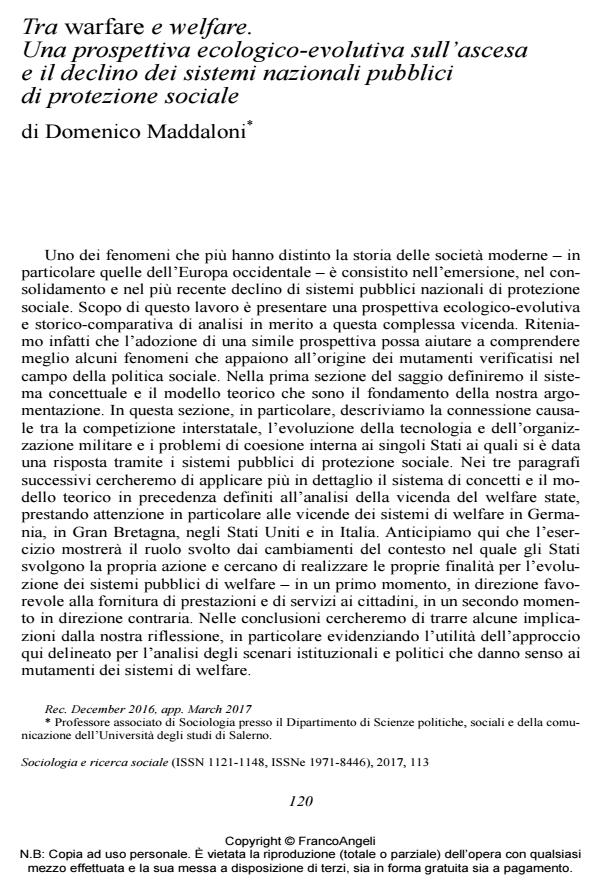Tra warfare e welfare. Una prospettiva ecologico-evolutiva sull’ascesa e il declino dei sistemi nazionali pubblici di protezione sociale
Titolo Rivista SOCIOLOGIA E RICERCA SOCIALE
Autori/Curatori Domenico Maddaloni
Anno di pubblicazione 2017 Fascicolo 2017/113
Lingua Italiano Numero pagine 23 P. 120-142 Dimensione file 230 KB
DOI 10.3280/SR2017-113006
Il DOI è il codice a barre della proprietà intellettuale: per saperne di più
clicca qui
Qui sotto puoi vedere in anteprima la prima pagina di questo articolo.
Se questo articolo ti interessa, lo puoi acquistare (e scaricare in formato pdf) seguendo le facili indicazioni per acquistare il download credit. Acquista Download Credits per scaricare questo Articolo in formato PDF

FrancoAngeli è membro della Publishers International Linking Association, Inc (PILA), associazione indipendente e non profit per facilitare (attraverso i servizi tecnologici implementati da CrossRef.org) l’accesso degli studiosi ai contenuti digitali nelle pubblicazioni professionali e scientifiche.
Domenico Maddaloni, Tra warfare e welfare. Una prospettiva ecologico-evolutiva sull’ascesa e il declino dei sistemi nazionali pubblici di protezione sociale in "SOCIOLOGIA E RICERCA SOCIALE " 113/2017, pp 120-142, DOI: 10.3280/SR2017-113006